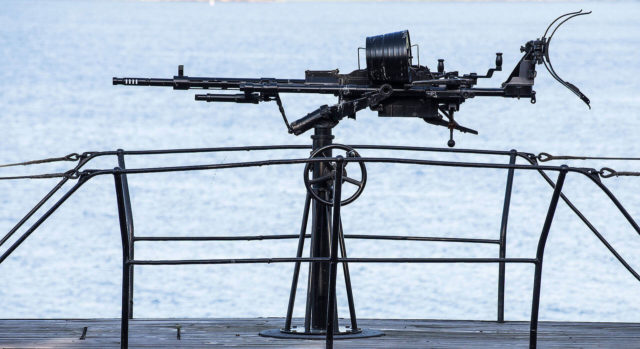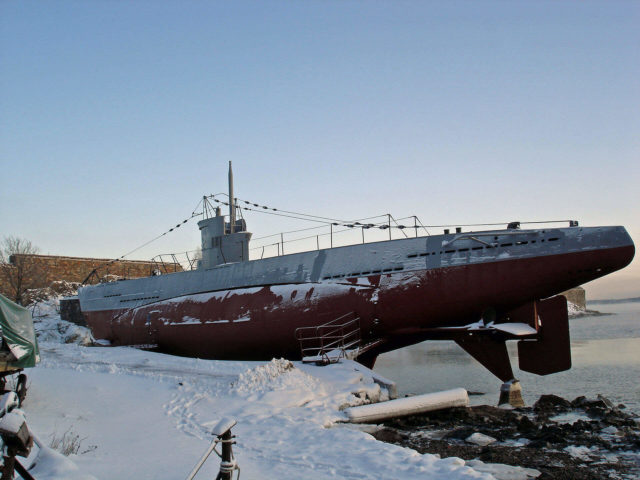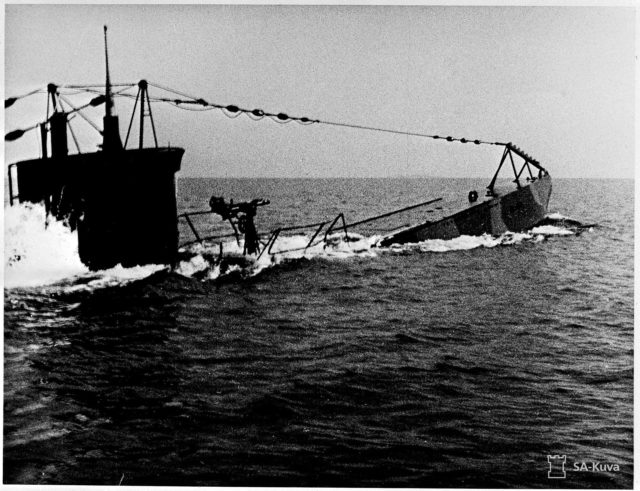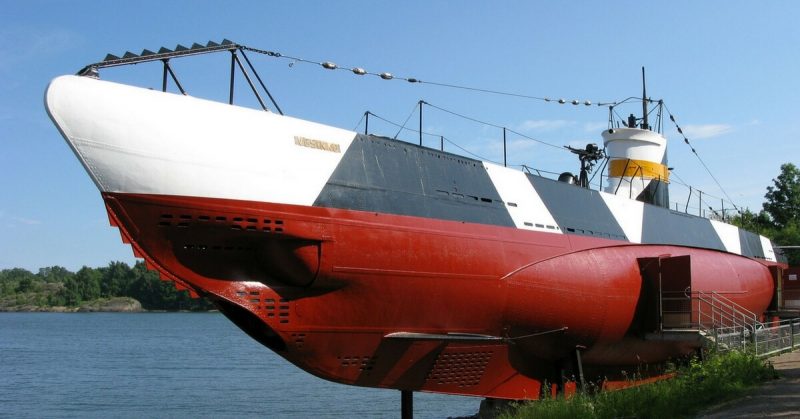In 1930 a Dutch company ordered the construction of a U-boat in Finland. NV Ingenieurskantoor voor Scheepsbouw (which in Dutch means, “Engineer-office for shipbuilding”) was, in fact, a front company set up by the Reichsmarine. After World War I the Treaty of Versailles forbade Germany from owning, operating or developing submarine technology and so the Germans found a way to secretly design, build and test prototypes of their new fleet through this Dutch company.
The Vesikko (or Mink) was launched in the Finnish town of Turku in 1933. In keeping with the secret nature of the project, it was given a code name of CV 707 for the first three years of its life. In 1934 the Finnish government exercised an option to buy the U-Boat, and it officially became part of the Finnish Navy in 1936 when it was given the name Vesikko.

Upon launch, CV 707 was one of the most technologically advanced submarines. It was able to dive to twice the depth of any previous German submarine and utilized innovative construction and welding techniques. The Germans conducted thorough testing in 1933-34 and Germany went on to build six type-2 U-boats that were almost identical to the Vesikko.
The amazing thing is that you can still walk around the Vesikko today as it forms part of a permanent exhibit on the Island of Suomenlinna, which is a short boat ride from the center of Helsinki. Thanks to the Finnish Military who operate the exhibit, War History Online was able to capture this stunning footage of the historic submarine from above.

Vesikko saw active service in both the Winter War and the Continuation War, and in 1941 she sank the Soviet merchant ship, “Vyborg.” Two torpedoes were launched and one failed to explode. However, the Soviet accounts of the sinking said the Vyborg was sunk with multiple submarines and over 20 torpedoes! Given that the Vesikko was only able to carry a total of three torpedoes this would have been an incredible achievement.
After the Paris treaty, Finland was forced to give up all five of its submarines, four of which went for scrap. However, somehow they managed to hang on to the Vesikko for training purposes in the hope that one day Finland would be able to start operating submarines once again.

However, Finland was not given permission, and the Vesikko languished in a dock, subject to rust and vandalism. That was until the 1970s when the Finnish military stepped in and made the Vesikko a permanent museum ship in her current location at Suomenlinna. Because of her weight, she had to be chopped into five separate pieces and welded back together in situ. If you look closely at her hull, you can still see the scars of the journey.
Happily, today Vesikko is one of the Finnish military’s most popular exhibits attracting tourists from all over the world. She is open during the summer months, and details can be found here.
If you find yourself in Finland, the Vesikko is a must see.
